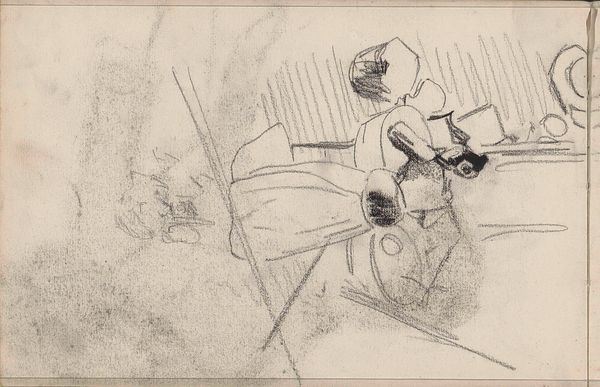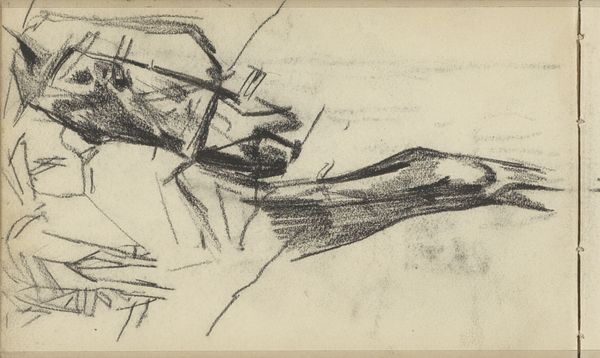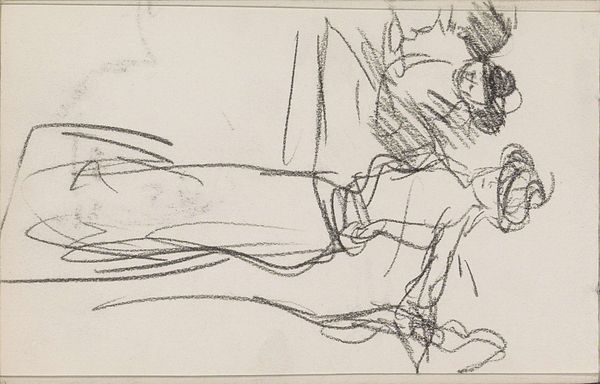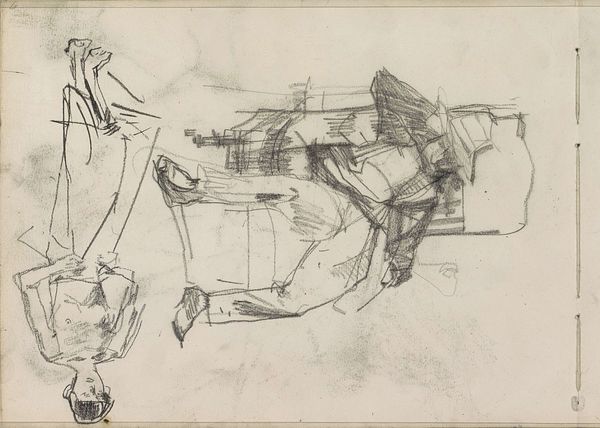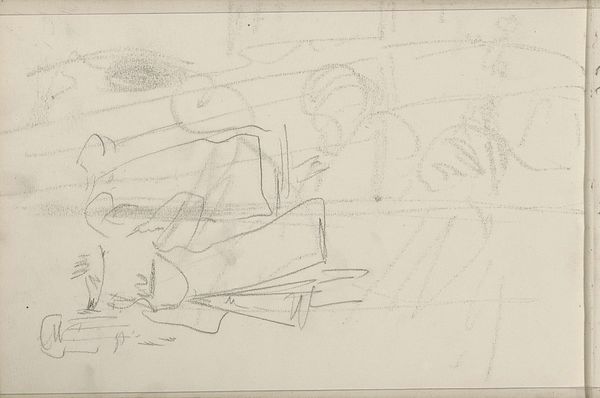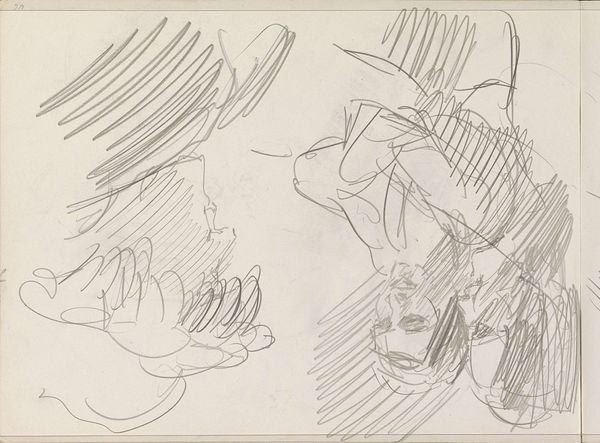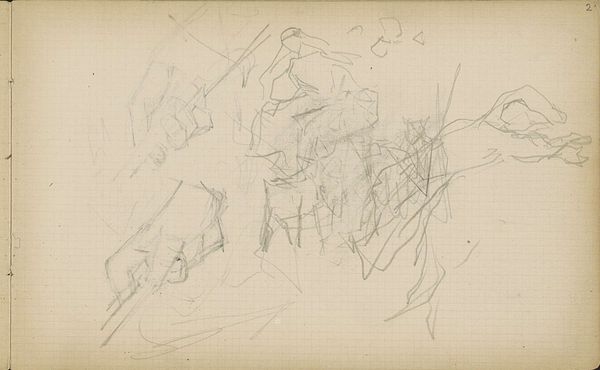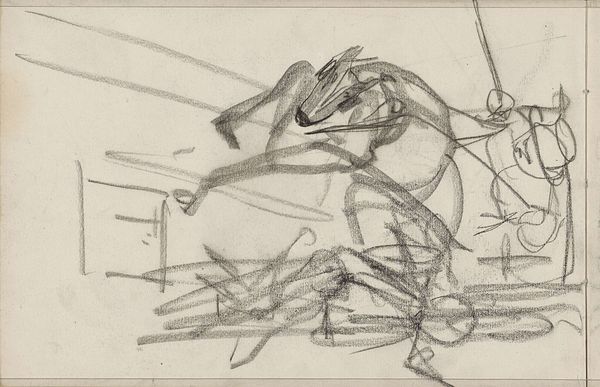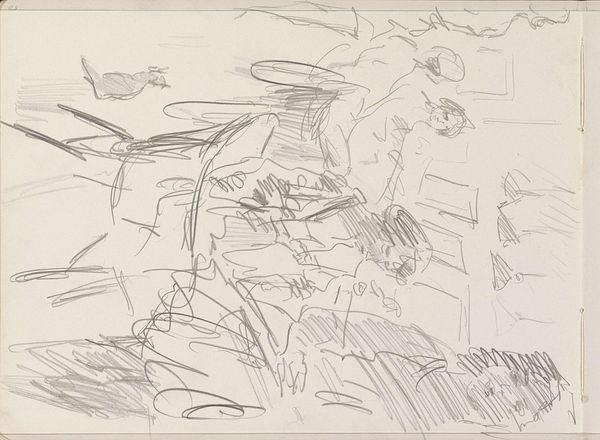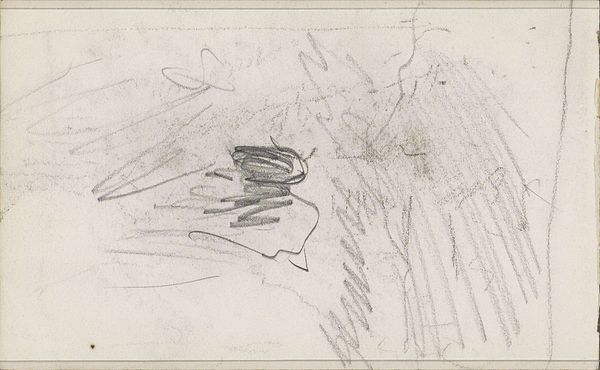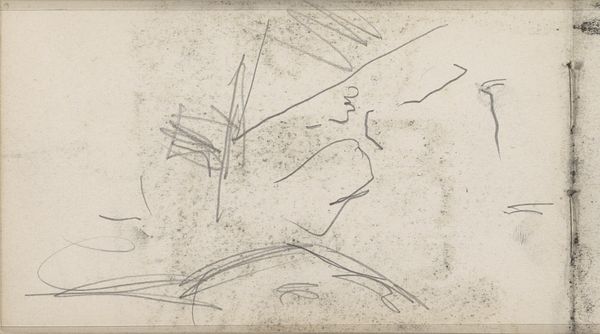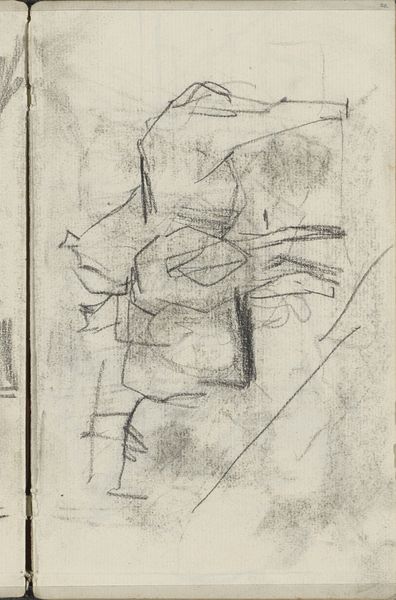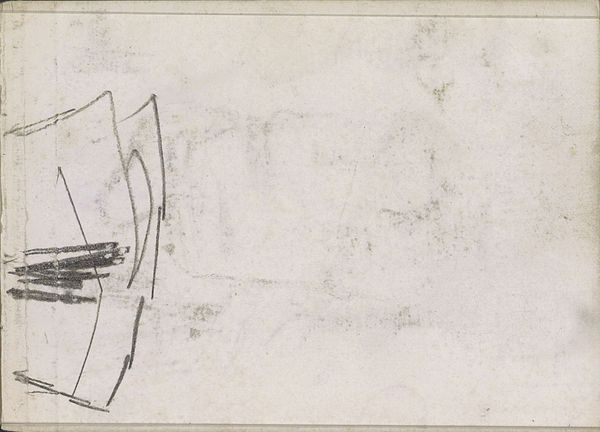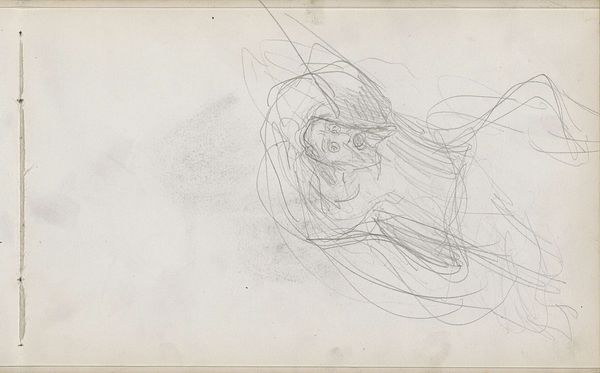
Copyright: Rijks Museum: Open Domain
Curator: This drawing by Isaac Israels, dating from around 1886 to 1903, is titled "Studieblad met vrouwen, mogelijk koffiepiksters," which translates to "Study Sheet with Women, Possibly Coffee Pickers." Executed in graphite and pencil, it’s currently held at the Rijksmuseum. Editor: It strikes me as a rather intimate, fleeting moment captured. The strokes are so quick, almost like a memory fading at the edges. It feels less like a formal portrait and more like a snapshot of a shared experience. Curator: Israels often depicted working-class subjects, and these women, potentially coffee pickers, align with that interest. Given the period and subject, it invites consideration of labor conditions, gendered roles, and class dynamics in Dutch colonial contexts. Editor: The hats...they're almost a code, aren’t they? Head coverings throughout history have symbolized so many things—status, piety, oppression. In this sketch, the way Israels renders them, with such care despite the quickness of the medium, suggests they carry significance, perhaps acting as markers of identity and community among these women. Curator: Precisely. Their clothing and postures hint at their socioeconomic standing and their occupation's demands. What strikes me is the anonymity, or rather the universality, he captures despite the seeming particularity. How might their social position influence how we see their representation and artistic agency, both by Israels, but also beyond the original setting of the drawing? Editor: Indeed. I see the visual language playing with familiarity, creating layers of accessibility and visual memory, where these women echo other depictions of laborers across eras. The quickness of the lines suggests to me the universality of toiling people rather than any one specific labor situation. Israels used lines like someone remembering not someone looking. Curator: Perhaps through that sketchiness, Israels captures a sense of ephemerality tied to labour, highlighting precariousness in marginalized people’s everyday lives? Editor: Absolutely. There's something inherently poignant about how lasting symbols of these women can still make statements today. Curator: Yes. This work prompts ongoing dialogue about power, representation, and the legacies of colonialism in visual culture. Editor: A simple study, yet resonant with questions about how we frame those legacies.
Comments
No comments
Be the first to comment and join the conversation on the ultimate creative platform.
